Just thought some folks might find this interesting. Please don't bother posting replies, it's just for research's sake - thanks!
Fast home sales require attention to pricing and promotion
Craig Venezia, Special to The Chronicle
Sunday, January 20, 2008
How long has it been on the market? That's a question most buyers are quick to ask. What most sellers don't realize is that the answer can have a dramatic impact on how potential buyers perceive their property.
In fact, the longer a house sits, the harder it is to sell, said John Asdourian, a broker with McGuire Real Estate and the current president of the San Francisco Association of Realtors.
"The Bay Area housing market is different today. Buyers are patient and picky. They're taking their time to buy, waiting to find just the right house at the right price," Asdourian said. "When buyers hear a property has been on the market for a while, they immediately wonder what's wrong with it? Many times, they think it must be overpriced and will either walk away from it or make an offer that's unrealistically low."
So, in this deflated market, what can sellers do to keep their house from becoming a tired listing? While nothing helps more than being located in one of those micromarkets that still is seeing annual appreciation, sellers can help themselves by making sure:
-- The house is priced properly.
-- It's marketed aggressively.
-- It looks good.
How long does it take before a listing becomes stale? It all depends on the current "days on market" statistic, which averages the period from when properties first list in the Multiple Listing Service to the point when all contingencies are lifted.
While days on market vary from town to town, for the Bay Areas it's hovering at 48 days as of November 2007, the most recent data from the California Association of Realtors.
Melissa Riccio knows all too well about what it's like to have a house sit too long. In August, she and her husband put their three-bedroom, two-bath house in San Carlos on the market for $1.15 million. Sixty days later, it was still on the market with no offers.
"We got a lot of traffic but no one was biting. As a matter of fact, we received just one offer during that time, which we passed on because it was well below asking and peppered with contingencies," Riccio says.
The couple decided to switch agents. The gave the listing to Justine Ford, an agent with Re/Max Today who has been selling houses in San Carlos for 20 years. "For the Riccios, the first thing I did was pull the listing," Ford said. "Then, based on comparable sales in the area, we relisted at a new price."
The new price was $50,000 less than the initial asking price. Not a huge reduction, only 4 1/2 percent, but enough to bring the property in line with the local market.
Before listing the property, Ford also brought in a handyman to freshen up the place with a little patching and spot painting. She hired, and paid for out of her own pocket, a staging company that brought in all new furniture and reworked the layout and space flow in each room.
"It was amazing how different our place looked afterward. It felt warm and inviting. Best of all, it looked very spacious," Riccio recalled.
Ford said the $3,000 she forked over to make the property more presentable was money well spent and considers it part of the cost of doing business. Asked whether she routinely pays for staging services for her clients, she says it all depends. "Sometimes I do. Other times, I'll split the cost with them or they'll pay for it entirely themselves. It really depends on the commission (from the sale of the house) that I and my clients agree to up front."
Another cost of doing business (about $1,000 or so) is the money Ford puts into developing marketing materials, everything from glossy brochures to high-end mailings. "It was night and day compared to our previous experience," says Riccio. "Justine's marketing materials were very classy and professional. Plus, she really knew how to show off our house in the best possible way, from the photos she included to the copy she wrote to the quality of printing."
When the Riccios 'property listed for the second time in October, they received an offer of $1.1 million ($1,000 over asking) in three days. Plus, it came without contingencies. The Riccios accepted in a heartbeat.
Home staging specialist Donna Reynolds isn't at all surprised by the Riccios' experience and said that second to accurate pricing, staging plays a vital role in being able to sell fast.
Reynolds also points out that staging doesn't always mean bringing in all new furniture. For example, her home staging firm, Home Rearrangements, works exclusively with the seller's existing furniture. "The most common problem we see is clutter," Reynolds said. "Many times, we'll put furniture and other items in storage then rearrange what's left to create a more open, inviting home. We pretty much work with what the seller has, although from time to time we will buy new bedding or towels to freshen up the place."
Reynolds also brings in a painter when needed for touch up or, when colors are an issue, the complete repainting of rooms. "The trick is to neutralize but don't sterilize the property," points out Reynolds. "You need to create an environment that allows buyers to visualize how their stuff will look in the house."
Take the case of Ginny and Don Reeves, who sold their 1970s house in Walnut Creek. The 60ish couple put their four-bedroom, two-bath home on the market early in April for $999,000. Based on comparable sales, the Reeves knew their home was priced right. However, after living in it for 37 years, they also knew they weren't looking at the house in the same way potential buyers would.
"After living in the same place for so long, you lose perspective on how others view your home," says Ginny Reeves. "Then it comes time to sell and you discover that it's not about what you find appealing but what buyers find appealing. We needed someone from the outside to help us with that."
The Reeves paid Home Rearrangements about $500 for that outside perspective. What the couple got was a complete makeover from the curb to the back fence. Many times, it was just a little touch, like adding a potted plant outside the front door, emptying and painting closets to make them look larger, or moving furniture for better space flow.
Those small touches paid off because the Reeves' house was put up for sale on a Friday and they had several offers that Monday. The one they accepted was $60,000 over asking.
But if you're a seller, don't start singing "happy days are here again" just yet. Receiving multiple offers and selling for significantly more than the asking price is now the exception and not the rule. A house of comparable size and condition a few doors down from the Reeves went on the market around the same time.
That house listed at $950,000, stayed on the market for nearly seven weeks and eventually sold for around $930,000. Ginny Reeves didn't think the owners of the house staged it.
Of course, staging your property isn't a mandate. Sometimes it just comes down to just pricing it right. When Jason Tsai, a research analyst at a San Francisco investment bank, wanted to sell his 3,000-square-foot home in Orinda, he made sure to do just that.
After researching comparable home sales, his three-bedroom, 2 1/2 bath rancher listed in April for $1.45 million and within a couple of days he accepted an offer for $3,000 over asking. According to Tsai, some minor furniture arranging and a little repainting was done before the property listed but that was about it.
So does Tsai think his property was priced right? "Let's just say our neighbor put his house on the market around the same time we did and he waited six months for an offer to come in."
Price, perception and promotion. That's what it takes to sell a home fast in today's market. For sellers, faster is better because the last thing you want is for a potential buyer to walk into your house and say, "So why has this place been sitting on market so long, what's wrong with it?"
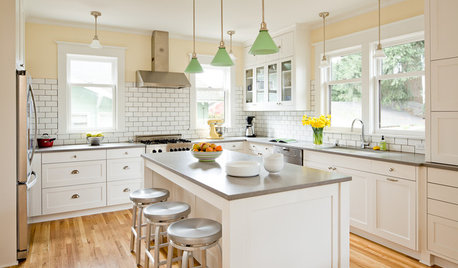
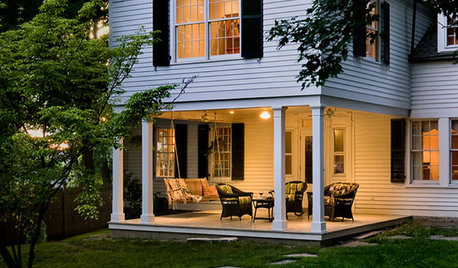
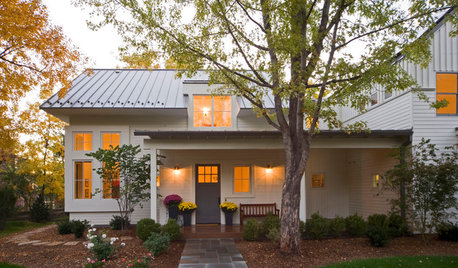


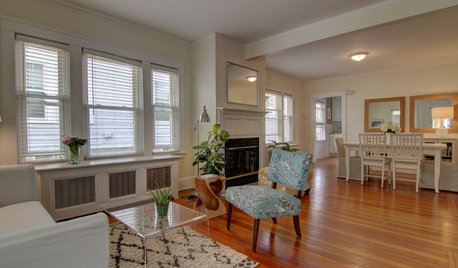

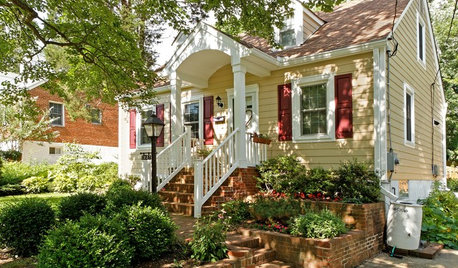









mfbenson
logic
Related Professionals
Hockessin Architects & Building Designers · Ken Caryl Architects & Building Designers · Parkway Architects & Building Designers · River Edge Architects & Building Designers · Hainesport General Contractors · Bon Air General Contractors · Conway General Contractors · Country Club Hills General Contractors · Ewing General Contractors · Halfway General Contractors · Waipahu General Contractors · Wyomissing General Contractors · Choctaw Home Stagers · Mountain Home Home Stagers · Liberty Township Interior Designers & Decoratorsmfbenson